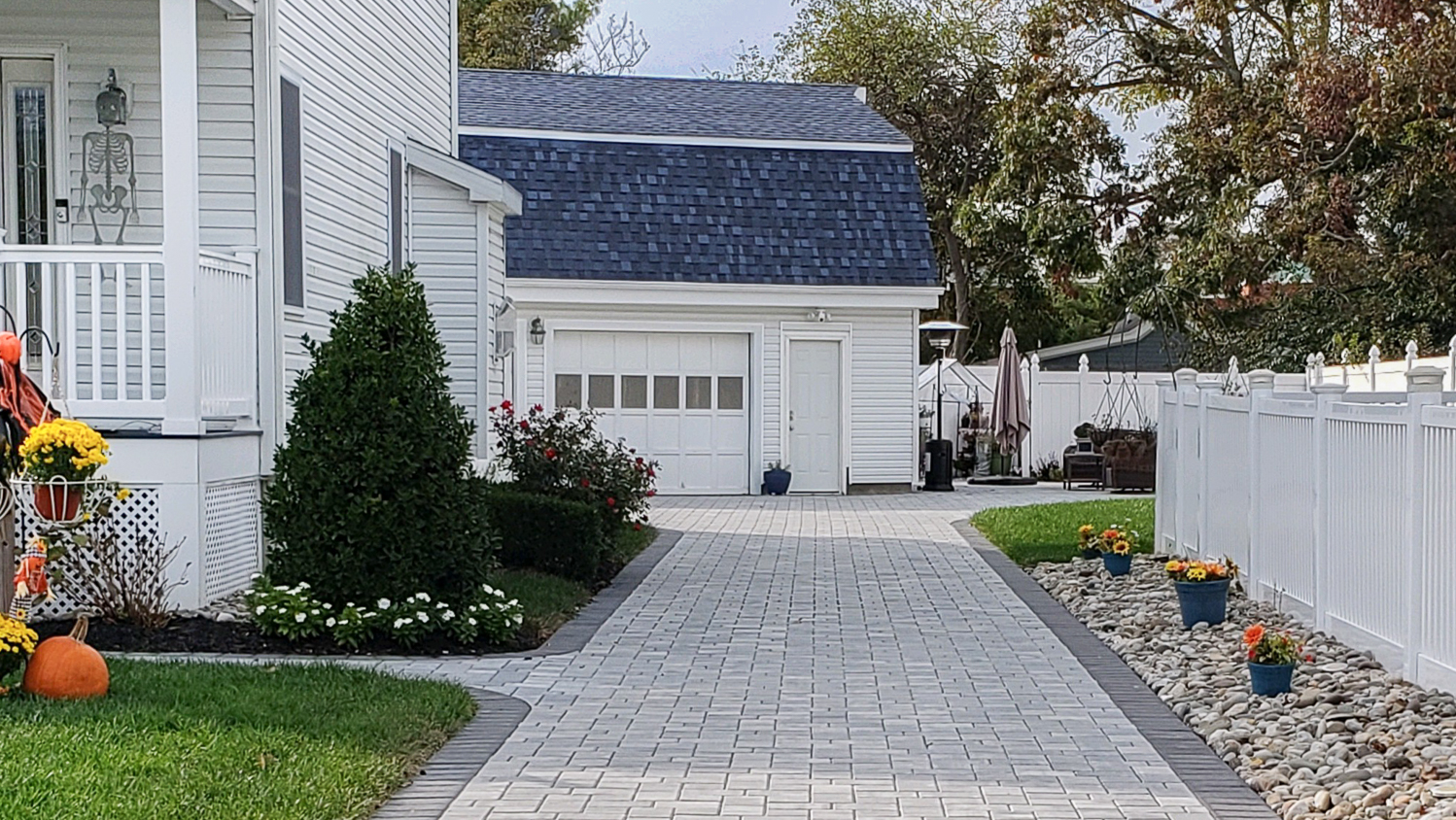
Use our guide to calculate the cost to seal an asphalt driveway. Prices vary based on the type of sealant and the size of the driveway.
There’s a lot going on under your driveway’s surface


Asphalt is a durable paving mix of aggregate minerals and asphalt cement that offers long-lasting results.
Aggregate refers to crushed stone laid beneath concrete or asphalt to form a stable foundation.
Pavers are interlocking stone, clay, or concrete blocks that add strength and curb appeal.
The apron connects your driveway to the street and can be finished with pavers or matching material for a polished look.
Your driveway may seem like a big concrete slab, but believe it or not, it has a lot of components. Don’t take your driveway for “granite”—familiarize yourself with all the driveway terminology you need to understand how complex all the parts of your driveway actually are. Doing so will help you understand when to repair or replace your driveway and appreciate how deceptively simple it is.
You might be surprised to find out that there are names for pretty much every part of your driveway, from the road to the house and from the ground to the surface. A lot goes into a quality driveway, so here’s the driveway terminology you should know in case anything ever goes wrong.

Asphalt is a paving material created from aggregate minerals cemented together with asphalt cement. This type of material sets over crushed stone, slag, gravel, brick, paving blocks, or Portland cement concrete.
This will allow the asphalt to bond to the pre-existing surface for more desired results and a longer life for the paved area.
Aggregate is crushed stone used as a sub-base for concrete, cement, or asphalt driveways. The stone provides the necessary surface area for the top material to adhere to and forms a stable base for driveway materials.
The process involves compressing soil and paving materials to reduce or remove air voids. This process creates a more structurally stable surface when compacted and aids in preventing premature damage to the completed paved surface.
Compaction requires large industrial equipment, which can place tremendous amounts of pressure to release trapped air.
Not to be confused with concrete, cement is a mixture created using various chemicals and Portland lime. This material is usually purchased in a dry form and mixed with water.
When the cement is spread out and allowed to dry, it creates a hard material with a strong density level.

Concrete is a paving and construction material created by mixing cement, sand, and crushed stone with water. When hardened, concrete driveways will not break down under the pressures of driving or walking over the surface.
Pavers are small, artificial blocks of stone, clay, or cement that form the driveway’s surface. They are placed in an interlocking pattern to increase strength and durability and increase visual appeal.

The driveway apron is the section of the driveway that meets the street. This section can comprise the same material as the driveway itself or, for some added charm, if you have a cement or concrete driveway, pavers or paver mats work just fine.
The curb cut is the section of your driveway where the curb ends and apron access begins.
Also called the curb return, these sections are located on either side of the driveway apron and cover the elevation change between the curb and the driveway surface.
An elongated tube or basin built into a driveway that diverts water away from a structure. Trench drains often sit in front of garage doors and other entrances.
From average costs to expert advice, get all the answers you need to get your job done.

Use our guide to calculate the cost to seal an asphalt driveway. Prices vary based on the type of sealant and the size of the driveway.

Discover the average paver driveway cost, including price ranges, key cost factors, and tips to help you budget for your driveway project.

When designing a driveway, it's crucial to know the cost of your driveway apron—the transitional ramp that connects you to the road. Here's what to know.

Use this guide to estimate the cost of your resin driveway based on its size, the materials used, and whether you hire a driveway contractor to complete the job.

Asphalt is the best driveway material for cold weather, but there are times when other materials may be a better fit. Get the details in this article.

Learn all the pros and cons of asphalt milling for your driveway. Learn about its affordability and eco-friendly benefits, as well as potential drawbacks.